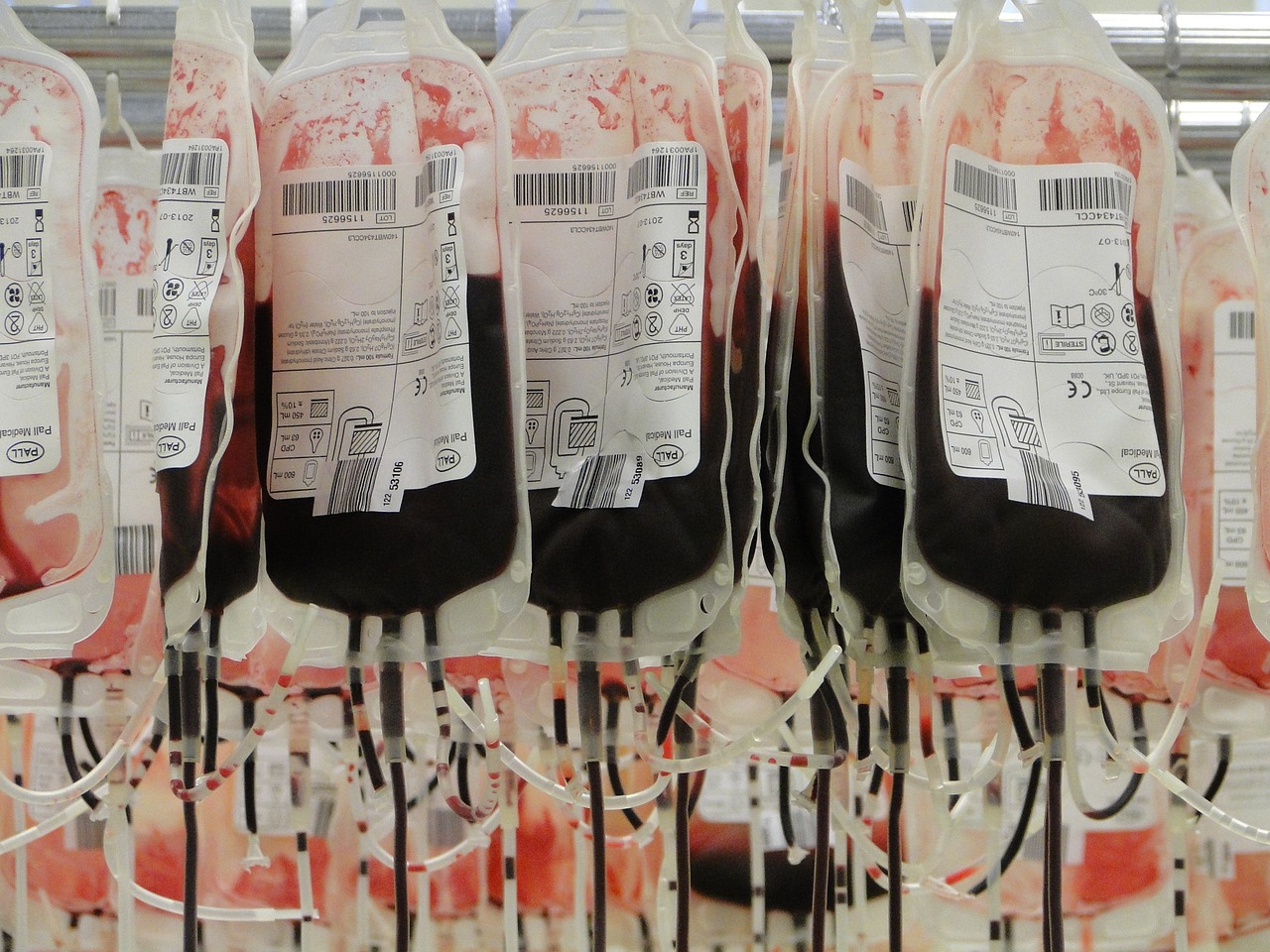Embarking on a 7-day water fast can be a life-altering experience. This article explores the profound changes that can occur during this week-long journey, examining the myriad benefits, challenges, and real-life transformations that individuals have encountered. Understanding the dynamics of a water fast is essential for anyone considering this path.
What is a 7-Day Water Fast?
A 7-day water fast involves the complete abstention from food, relying solely on water for sustenance. This practice is often pursued for detoxification, weight loss, and various health benefits. The purpose of this fast is to allow the body to reset, promoting healing and rejuvenation.
Benefits of a 7-Day Water Fast
- Weight Loss: One of the most immediate effects is significant weight loss. This occurs as the body taps into fat reserves for energy.
- Mental Clarity: Many report enhanced focus and cognitive function, attributed to the absence of food-induced distractions.
- Metabolic Health: Fasting can improve insulin sensitivity and promote better metabolic health.
Weight Loss and Fat Loss
During a water fast, the body enters a state of ketosis, where it burns fat for fuel. This section will explore how fasting creates a caloric deficit and the science behind fat loss during this period.
Understanding Caloric Deficit
A caloric deficit occurs when the body consumes fewer calories than it expends. In a water fast, this deficit is achieved as the body utilizes stored fat for energy, resulting in weight loss.
Long-term Weight Management
While a 7-day fast can initiate weight loss, maintaining these results requires sustainable lifestyle changes. Adopting healthy eating habits post-fast is crucial for long-term success.
Mental Clarity and Focus
Many individuals experience a surge in mental clarity during fasting. This section discusses the neurological effects of fasting and how it can enhance cognitive function, leading to improved productivity and creativity.
Challenges Faced During a Water Fast
Despite its benefits, a 7-day water fast can pose challenges such as hunger, fatigue, and emotional fluctuations. Understanding these potential hurdles can help prepare participants for the experience.
Physical Symptoms
- Common physical symptoms include headaches, fatigue, and dizziness.
- Strategies for managing discomfort include staying hydrated and engaging in light activities.
Emotional and Psychological Effects
Fasting can trigger emotional ups and downs, including mood swings and irritability. This section emphasizes the importance of mental preparation and self-care during the fasting period.
Real Transformations: Before and After Experiences
Real-life testimonials showcase the transformations experienced by individuals who completed a 7-day water fast. These accounts highlight both physical and psychological changes, offering insight into the profound impact of fasting.
Case Studies of Successful Fasts
Examining specific case studies reveals the diverse experiences of those who undertook a 7-day water fast. Each case provides valuable lessons and insights into personal growth and health improvements.
Visual Transformations: Before and After Photos
Visual documentation can be powerful. This section discusses the significance of before and after photos in illustrating the physical changes that occur during a water fast, showcasing the tangible results of dedication and discipline.
Post-Fast Recovery: What to Expect
Recovering from a 7-day water fast requires careful planning. Understanding what to expect during the refeeding phase is essential for a smooth transition back to solid food.
Reintroducing Food Safely
Properly reintroducing food is crucial after a fast. Guidelines on how to safely break a fast can help avoid digestive issues and ensure the maintenance of health benefits.
Maintaining Results After the Fast
Sustaining the benefits of a water fast involves lifestyle adjustments. This section offers practical advice on maintaining weight loss and improved health through balanced nutrition and regular exercise.

What is a 7-Day Water Fast?
A 7-day water fast is a practice that involves the complete abstention from all food and the exclusive consumption of water for a week. This fasting method is often pursued for various reasons, including detoxification, weight loss, and potential health benefits. Understanding the core purpose of this fasting technique is essential to appreciating its impact on the body and mind.
During a 7-day water fast, individuals typically aim to reset their bodies, allowing for a period of rest and rejuvenation. The concept is rooted in the idea that by eliminating food intake, the body can focus on healing and detoxifying itself. This process can lead to a range of physiological changes, including metabolic shifts, where the body begins to utilize stored fat for energy.
- Detoxification: Fasting is believed to help eliminate toxins that accumulate in the body from processed foods and environmental factors.
- Weight Loss: A significant reduction in caloric intake leads to weight loss, as the body starts to burn fat reserves.
- Improved Mental Clarity: Many participants report enhanced focus and mental clarity during the fasting period.
However, a 7-day water fast is not without its challenges. Individuals may experience physical symptoms such as hunger, fatigue, and even emotional fluctuations. Preparing mentally and physically for these challenges is crucial for a successful fasting experience.
The potential benefits of a 7-day water fast can be profound, but it is essential to approach this practice with caution and awareness. Consulting with a healthcare professional before embarking on such a fast is highly recommended, especially for those with pre-existing health conditions or concerns.
In summary, a 7-day water fast is a significant commitment that can lead to various health benefits, including detoxification and weight loss. Understanding its purpose and potential impacts can help individuals make informed decisions about their health and wellness journeys.

Benefits of a 7-Day Water Fast
Engaging in a 7-day water fast can lead to a multitude of health benefits that extend beyond mere weight loss. This fasting method not only promotes physical transformation but also enhances mental clarity and metabolic health, making it a holistic approach to well-being. Understanding these benefits can provide insight into why many individuals choose to undertake this journey.
One of the most immediate and noticeable effects of a 7-day water fast is weight loss. During this period, the body enters a state of ketosis, wherein it begins to utilize stored fat as a primary energy source. This process is scientifically backed by the principle of caloric deficit, which occurs when the body burns more calories than it consumes. As individuals abstain from food, their bodies naturally turn to fat reserves, resulting in significant fat loss.
A caloric deficit is a fundamental concept in weight management. When engaging in a water fast, the absence of food intake means that the body is forced to tap into its energy stores. This not only facilitates weight loss but also encourages the body to become more efficient at burning fat. Studies indicate that fasting can enhance metabolic flexibility, allowing the body to switch between burning carbohydrates and fats more effectively.
While a 7-day water fast can kickstart weight loss, it is essential to recognize that maintaining these results requires ongoing commitment. Post-fast, individuals are encouraged to adopt sustainable lifestyle changes and healthy eating habits. Incorporating a balanced diet rich in whole foods, along with regular physical activity, can help sustain the benefits achieved during the fast.
Many participants report an increase in mental clarity during a water fast. This phenomenon can be attributed to several factors, including reduced inflammation and improved brain function. Fasting has been shown to increase the production of brain-derived neurotrophic factor (BDNF), a protein that supports neuron growth and enhances cognitive function.
Research suggests that fasting can lead to improved focus and concentration. As the body enters a state of ketosis, it produces ketones, which serve as an efficient energy source for the brain. This shift can enhance cognitive performance, leading to heightened awareness and mental acuity.
A 7-day water fast can significantly improve metabolic health. This includes better blood sugar control, reduced insulin resistance, and improved lipid profiles. Fasting promotes autophagy, a cellular cleanup process that removes damaged cells and regenerates new ones, thereby supporting overall metabolic function.
During a water fast, insulin levels drop, allowing the body to become more sensitive to insulin over time. This can lead to improved blood sugar regulation, which is crucial for preventing conditions such as type 2 diabetes. Many individuals report more stable energy levels and reduced cravings after completing the fast.
Beyond physical transformations, a 7-day water fast can also provide emotional and psychological benefits. The act of fasting requires discipline and mental resilience, which can enhance one’s sense of accomplishment and self-efficacy. Participants often describe feelings of empowerment and clarity, contributing to improved mental health.
Fasting can serve as a period of self-reflection and mindfulness. Many individuals use this time to evaluate their relationship with food and their overall lifestyle choices. This introspection can lead to healthier habits and a more balanced approach to eating.
In summary, engaging in a 7-day water fast can yield a range of health benefits, from weight loss and improved mental clarity to enhanced metabolic health. Each of these benefits plays a crucial role in the overall experience, making fasting a powerful tool for those seeking transformation.
Weight Loss and Fat Loss
When it comes to weight loss, one of the most significant outcomes of a 7-day water fast is the noticeable reduction in body weight. This phenomenon is primarily attributed to the body’s metabolic response during the fasting period. In this section, we will delve into how fasting not only induces fat loss but also the scientific principles behind the caloric deficit that occurs during this time.
During a water fast, the body is deprived of all food intake, which leads to a natural state of caloric deficit. This deficit happens because the body requires energy to sustain its functions, and in the absence of food, it begins to utilize stored energy, primarily from fat reserves. Research indicates that this process can lead to a significant reduction in body fat percentage over the course of just one week.
To understand this better, it’s essential to recognize how the body responds to fasting. Initially, the body uses glycogen, stored in the liver and muscles, as its primary source of energy. Once glycogen stores are depleted, typically within the first 24 to 48 hours, the body shifts to burning fat for energy. This metabolic switch is a critical factor in achieving weight loss during a water fast.
Moreover, fasting triggers several hormonal changes that facilitate fat loss. For instance, levels of insulin decrease, which promotes fat breakdown, while levels of human growth hormone (HGH) increase, aiding in fat loss and muscle preservation. These hormonal adjustments not only enhance fat metabolism but also improve overall body composition.
It’s important to note that while a 7-day water fast can lead to rapid weight loss, the results can vary among individuals based on factors such as starting weight, metabolic rate, and adherence to the fasting protocol. Some individuals may experience a more significant drop in weight due to higher fat reserves, while others may see less dramatic results.
Furthermore, the weight lost during a water fast is not solely fat; some individuals may also lose water weight and muscle mass. This is why it’s crucial to approach post-fast nutrition with care. After completing the fast, individuals should focus on reintroducing nutrient-dense foods to replenish lost nutrients and support muscle recovery.
In conclusion, the weight loss experienced during a 7-day water fast is a multifaceted process involving caloric deficit, metabolic changes, and hormonal responses. Understanding these mechanisms can empower individuals to make informed decisions about fasting and its implications for long-term weight management.
| Factors Influencing Weight Loss | Impact on Results |
|---|---|
| Starting Weight | Higher initial weight may lead to more significant fat loss. |
| Metabolic Rate | Individuals with a higher metabolism may lose weight more quickly. |
| Adherence to Fast | Strict adherence can enhance weight loss results. |
- Fat Loss: Primarily from fat reserves after glycogen depletion.
- Water Weight: Initial losses often include water weight.
- Muscle Mass: Potential for muscle loss if not managed post-fast.
Understanding Caloric Deficit
is essential for anyone interested in weight management, especially during fasting periods like a 7-day water fast. A caloric deficit occurs when the number of calories you consume is less than the number of calories your body burns. This fundamental principle is key to achieving weight loss and can be particularly pronounced during a water fast.
During a 7-day water fast, individuals consume only water, which significantly reduces their caloric intake. As a result, the body is forced to utilize its fat reserves for energy. This process is known as lipolysis, where stored fat is broken down to release energy, leading to weight loss.
To better understand this concept, let’s break it down into a few key components:
- Caloric Needs: Every individual has a unique caloric requirement based on factors such as age, sex, weight, height, and activity level. This is often referred to as the Basal Metabolic Rate (BMR), which represents the number of calories your body needs at rest to maintain essential functions.
- Caloric Intake: During a water fast, the intake is drastically reduced to zero calories, which creates a significant caloric deficit. This is a deliberate approach to induce weight loss and promote metabolic changes.
- Energy Utilization: When the body enters a state of caloric deficit, it begins to utilize stored fat for energy, leading to fat loss. This is a natural survival mechanism that helps the body function optimally even in the absence of food.
It’s important to note that while a caloric deficit is necessary for weight loss, the approach to achieving it should be healthy and sustainable. A prolonged or extreme caloric deficit can lead to negative health consequences, including nutrient deficiencies, muscle loss, and metabolic slowdown.
Moreover, the psychological aspect of fasting cannot be overlooked. Many individuals report feeling mentally clearer and more focused during a fast, which can be attributed to the hormonal changes that occur when the body is in a state of ketosis—a metabolic state that arises when fat is burned for energy instead of carbohydrates.
In addition to weight loss, understanding the caloric deficit can also aid in long-term weight management. After completing a water fast, it is crucial to gradually reintroduce food and maintain a balanced diet to avoid regaining the weight lost. Incorporating healthy eating habits and regular physical activity can help sustain the benefits achieved during the fast.
Ultimately, grasping the concept of a caloric deficit and its implications during a water fast is vital for anyone looking to embark on this journey. It empowers individuals to make informed decisions about their health and wellness, ensuring that they approach fasting with a clear understanding of its effects on the body.
Long-term Weight Management
Maintaining weight loss after a 7-day water fast is a crucial aspect that many individuals overlook. While the fast itself can lead to significant weight loss, the journey does not end there. To ensure that the weight lost during the fast does not return, it is essential to adopt sustainable lifestyle changes and healthy eating habits that promote long-term weight management.
Understanding the physiological changes that occur during a fast is vital. The body undergoes a metabolic shift as it transitions from using glucose for energy to burning fat stores. This process can be beneficial for weight loss; however, it is equally important to ensure that these changes are supported by a balanced diet and regular physical activity post-fast.
- Reassess Your Diet: After completing a fast, individuals should focus on incorporating whole foods such as fruits, vegetables, lean proteins, and whole grains into their meals. Avoiding processed foods and high-sugar items is crucial for maintaining weight loss.
- Portion Control: It is easy to overindulge after a period of fasting. Practicing portion control can help in managing caloric intake and preventing weight regain.
- Stay Hydrated: Drinking plenty of water is essential for overall health and can help control hunger. Sometimes, the body confuses thirst with hunger, leading to unnecessary snacking.
- Regular Physical Activity: Incorporating exercise into your routine can enhance metabolic rate and help in maintaining weight loss. Aim for a mix of cardio and strength training to build muscle and burn fat.
Additionally, mindful eating practices can significantly impact long-term weight management. This involves paying attention to hunger cues, eating slowly, and savoring each bite, which can lead to improved satisfaction and reduced overeating.
Emotional and psychological factors also play a significant role in weight maintenance. Many individuals may face challenges such as cravings or emotional eating after a fast. Addressing these issues through mindfulness techniques, support groups, or counseling can provide valuable tools for managing weight effectively.
Moreover, tracking progress through journaling or using apps can help individuals stay accountable. Keeping a record of food intake, exercise, and emotional states can provide insights into patterns that may lead to weight gain.
In conclusion, while a 7-day water fast can serve as a powerful catalyst for weight loss, the key to lasting results lies in the commitment to sustainable changes. By focusing on balanced nutrition, physical activity, and emotional well-being, individuals can maintain their weight loss and enhance their overall health. Embracing this holistic approach not only supports weight management but also fosters a healthier lifestyle that can lead to long-term success.
Mental Clarity and Focus
During a 7-day water fast, many individuals experience a remarkable enhancement in mental clarity and focus. This phenomenon is not merely anecdotal; scientific research supports the notion that fasting can lead to significant neurological improvements. In this section, we will delve into the intricate relationship between fasting and cognitive function, exploring how the brain responds during periods of caloric restriction.
One of the primary reasons for the increased mental clarity during a water fast is the body’s transition into a state of ketosis. When food intake is significantly reduced, the body begins to utilize fat stores for energy. This metabolic shift results in the production of ketones, which serve as an alternative energy source for the brain. Studies have shown that ketones can enhance cognitive performance by providing a more efficient fuel source compared to glucose.
Moreover, fasting triggers a process known as autophagy, where the body cleanses itself by removing damaged cells and regenerating new ones. This cellular renewal is crucial for maintaining optimal brain function. Research indicates that autophagy may improve neuroplasticity, the brain’s ability to adapt and reorganize itself, leading to enhanced learning and memory capabilities.
Additionally, fasting has been linked to reduced levels of inflammation in the brain. Chronic inflammation is associated with various neurological disorders, including Alzheimer’s disease and depression. By minimizing inflammation, individuals may experience improved mood and cognitive function, further contributing to the heightened mental clarity reported during fasting.
Another significant aspect of fasting is its impact on hormonal balance. During a water fast, levels of the hormone norepinephrine increase, which can enhance alertness and focus. This hormonal change, combined with the physiological benefits of fasting, creates a conducive environment for improved cognitive performance.
Despite these benefits, it is essential to approach water fasting with caution. While many report positive experiences regarding mental clarity, others may encounter challenges such as irritability, difficulty concentrating, or fatigue. These symptoms can arise, particularly in the initial days of fasting as the body adjusts to the lack of food intake. Understanding these potential challenges is crucial for anyone considering a water fast.
To maximize the cognitive benefits of a water fast, it is advisable to engage in mindfulness practices such as meditation or light exercise. These activities can further enhance mental clarity and focus, allowing individuals to harness the full potential of their fasting experience.
In conclusion, a 7-day water fast can significantly enhance mental clarity and cognitive function through various physiological mechanisms, including ketosis, autophagy, reduced inflammation, and hormonal changes. While the journey may present challenges, the potential for improved mental acuity makes fasting an intriguing option for those seeking to boost their cognitive health.

Challenges Faced During a Water Fast
While a 7-day water fast can offer numerous health benefits, it is essential to recognize that this journey is not without its challenges. Understanding these potential hurdles can significantly enhance the experience and prepare individuals mentally and physically for what lies ahead.
Hunger and Cravings
One of the most immediate challenges during a water fast is the sensation of hunger. As the body adjusts to the absence of solid food, cravings may intensify, especially in the first few days. This is a natural physiological response as the body begins to seek its usual sources of energy. Strategies such as staying hydrated, engaging in light activities, and practicing mindfulness can help mitigate these cravings.
Fatigue and Low Energy Levels
Many individuals report experiencing fatigue during a water fast. This can be attributed to the body transitioning into a state of ketosis, where it begins to burn fat for energy instead of carbohydrates. While this process can lead to increased fat loss, the initial phase may leave individuals feeling drained. To combat fatigue, it is advisable to rest when needed and avoid strenuous activities.
Emotional Fluctuations
The psychological aspects of fasting can also present challenges. Participants often experience mood swings and emotional fluctuations as the body undergoes significant changes. The absence of food can impact serotonin levels, which play a crucial role in mood regulation. Being aware of these potential emotional shifts can help individuals prepare and cope with feelings of irritability or sadness.
Physical Symptoms
In addition to hunger and fatigue, some may encounter various physical symptoms such as headaches, dizziness, and digestive discomfort. These symptoms are often temporary and can result from withdrawal from caffeine or sugar, as well as the body’s adjustment to fasting. Staying well-hydrated and ensuring adequate electrolyte balance can help alleviate some of these physical challenges.
Social and Lifestyle Impacts
Fasting can also have social implications, as meals often serve as a communal activity. Individuals may find it challenging to navigate social gatherings or family meals during their fast. Communicating intentions with friends and family can ease this burden, allowing for support and understanding during the fasting period.
Tips for Overcoming Challenges
- Stay Hydrated: Drinking plenty of water is crucial. It not only helps curb hunger but also supports bodily functions.
- Practice Mindfulness: Engaging in meditation or deep-breathing exercises can help manage emotional fluctuations and cravings.
- Plan Activities: Keeping busy with light activities or hobbies can distract from hunger and enhance the fasting experience.
- Seek Support: Joining a fasting community or finding a fasting buddy can provide motivation and encouragement.
In summary, while a 7-day water fast presents various challenges, being aware of these potential hurdles can empower individuals to navigate their fasting journey more effectively. Preparation, mindset, and support play crucial roles in overcoming these obstacles, leading to a more rewarding and transformative experience.
Physical Symptoms
During a 7-day water fast, participants often encounter various physical symptoms that can impact their overall experience. Understanding these reactions is crucial for anyone considering this journey. Common symptoms include headaches, fatigue, and potential digestive discomfort. This section will explore these physical reactions in detail and provide practical tips for managing discomfort effectively.
- Headaches: Many individuals report experiencing headaches, particularly in the initial days of fasting. This can be attributed to withdrawal from caffeine or sugar, dehydration, or changes in blood sugar levels.
- Fatigue: A sense of fatigue is also common as the body adapts to the lack of food. Energy levels may fluctuate as the body switches from using glucose for energy to burning fat.
- Dizziness: Some participants may feel lightheaded or dizzy, especially when standing up quickly. This can be a result of low blood pressure or dehydration.
- Muscle Aches: As the body begins to use fat stores for energy, muscle soreness may occur due to the metabolic changes taking place.
While experiencing these symptoms can be challenging, there are several strategies to help manage discomfort:
- Stay Hydrated: Drinking plenty of water is essential. Aim for at least 2-3 liters per day to help alleviate headaches and fatigue.
- Rest and Relaxation: Listen to your body. If you feel fatigued, allow yourself to rest. Engaging in light activities such as walking or gentle stretching can also be beneficial.
- Electrolyte Balance: Consider adding a pinch of salt to your water or consuming electrolyte supplements to help maintain balance and reduce headaches.
- Mindfulness and Meditation: Practicing mindfulness or meditation can help manage stress and emotional fluctuations that may arise during the fast.
It is important to recognize that these physical symptoms are often temporary and can be part of the body’s natural adjustment process. As the fast progresses, many individuals report a decrease in these symptoms as they adapt to the new state of fasting. The initial discomfort may give way to a sense of clarity and increased energy as the body begins to utilize stored fat more efficiently.
While many symptoms are manageable, it is crucial to be aware of your body’s signals. If you experience severe headaches, persistent dizziness, or any other concerning symptoms, it is advisable to consult a healthcare professional. Individual responses to fasting can vary significantly, and understanding your limits is vital for a safe experience.
In conclusion, while a 7-day water fast can lead to various physical symptoms, understanding and managing these reactions can enhance the overall experience. By staying hydrated, resting, and listening to your body, participants can navigate the challenges of fasting more effectively.
Emotional and Psychological Effects
Fasting is a powerful practice that can lead to significant physical and mental transformations. However, the emotional and psychological effects of fasting are often overlooked. This section delves into the complexities of emotional fluctuations that can occur during a fasting period, particularly during a 7-day water fast.
During fasting, individuals may experience a range of emotions that can fluctuate dramatically. Initially, many people feel a sense of euphoria or clarity, often referred to as the “fasting high.” This state can be attributed to the body entering a state of ketosis, where fat is burned for fuel, leading to increased energy levels and mental clarity. However, as the fast progresses, feelings of irritability, anxiety, and mood swings may set in. This emotional rollercoaster can be attributed to several factors:
- Caloric Deficit: The body is accustomed to receiving a certain amount of calories, and when this is suddenly cut off, it can lead to irritability and mood swings.
- Withdrawal Symptoms: If an individual regularly consumes caffeine or sugar, the absence of these substances during a fast can trigger withdrawal symptoms, further exacerbating emotional instability.
- Psychological Stress: The mental challenge of abstaining from food can create stress, leading to feelings of frustration and anxiety.
To navigate these emotional ups and downs, mental preparation is crucial. Here are some strategies to help manage emotional fluctuations during a fast:
- Set Clear Intentions: Before starting a fast, define your reasons and goals. This can provide motivation and help maintain focus during challenging moments.
- Practice Mindfulness: Engaging in mindfulness practices such as meditation or deep breathing can help ground emotions and reduce stress levels.
- Stay Hydrated: Drinking plenty of water is essential not only for physical health but also for maintaining emotional balance.
- Seek Support: Sharing your fasting experience with friends or joining a fasting community can provide encouragement and help alleviate feelings of isolation.
Moreover, understanding that emotional fluctuations are a normal part of the fasting process can help individuals cope better. Recognizing that these feelings are temporary and will pass can lessen their impact. It’s also important to remind oneself that fasting is a journey, and every individual’s experience is unique.
In conclusion, while the physical benefits of a 7-day water fast are often highlighted, the emotional and psychological effects are equally significant. By preparing mentally and employing coping strategies, individuals can better navigate the emotional landscape of fasting, turning potential challenges into opportunities for personal growth.

Real Transformations: Before and After Experiences
When it comes to health and wellness, few experiences are as transformative as a 7-day water fast. This practice has gained popularity not just for its potential physical benefits, but also for the profound psychological changes it can trigger. In this section, we will explore real-life testimonials that illuminate the remarkable transformations individuals undergo before and after a 7-day water fast.
Before embarking on a water fast, many individuals report feeling sluggish, mentally foggy, and burdened by unhealthy eating habits. The 7-day water fast serves as a reset button, allowing the body and mind to detoxify and rejuvenate. Participants often express a mix of excitement and apprehension as they prepare for this journey.
One of the most immediate changes observed during a 7-day water fast is significant weight loss. Many testimonials highlight a reduction in body weight, with some individuals shedding anywhere from 5 to 15 pounds. This weight loss is attributed to the body’s shift from using food for energy to utilizing stored fat. A participant named Sarah shared her experience, stating, “I felt lighter, both physically and emotionally. The weight loss was just the beginning.”
Not only do participants experience physical changes, but they also report heightened mental clarity and emotional resilience. After the fast, many individuals describe feeling more focused and alert. John, a recent participant, remarked, “I never knew I could think so clearly. It was like a fog had lifted.” This newfound mental sharpness can often lead to improved productivity and creativity.
While the benefits are substantial, the journey is not without its challenges. Many individuals face cravings, fatigue, and emotional fluctuations during the fasting period. However, these challenges often lead to personal growth. For instance, Emily shared, “The first few days were tough, but I learned to embrace the discomfort. It taught me so much about my relationship with food.”
The power of visual documentation cannot be understated. Many participants choose to capture their before and after photos, which serve as a testament to their journey. These images often reveal not just physical changes, but also a newfound confidence and vibrancy. A participant named Mark stated, “Seeing my transformation in photos was incredibly motivating. It solidified my commitment to maintaining these changes.”
Another significant aspect of the transformational journey is the sense of community that develops among participants. Many individuals find support through online forums or local fasting groups, sharing their experiences, challenges, and victories. This communal aspect further enhances the psychological benefits of the fast, as individuals feel less isolated in their journey. As one participant noted, “Having a support system made all the difference. We celebrated each other’s wins, big and small.”
After completing a 7-day water fast, many participants reflect on their experiences and the changes they wish to maintain. This often includes adopting healthier eating habits, regular exercise, and mindfulness practices. The fast serves as a catalyst for long-term lifestyle changes. “I’ve learned to listen to my body more,” said Jessica, who has maintained her weight loss and improved health months after her fast.
In summary, the real-life testimonials of individuals who have undergone a 7-day water fast highlight a journey of profound transformation. From physical changes to enhanced mental clarity and emotional resilience, the impact of this fasting experience resonates deeply. For many, it is not just about the fast itself, but the life-changing insights gained along the way.
Case Studies of Successful Fasts
Examining specific case studies provides valuable insight into the diverse experiences of individuals who have completed a 7-day water fast. Each person’s journey is unique, showcasing a range of outcomes that can inspire and inform others considering this transformative practice.
- Case Study 1: John’s Journey to Clarity
John, a 32-year-old software engineer, embarked on a 7-day water fast to combat chronic fatigue and improve his mental clarity. Throughout the week, he experienced significant fluctuations in energy levels. However, by day four, John reported a surge in mental clarity, allowing him to focus better on his work. Post-fast, he noted a reduction in his overall anxiety levels and a newfound zest for life.
- Case Study 2: Sarah’s Weight Loss Transformation
At 28, Sarah decided to undertake a water fast as part of her weight loss journey. Initially skeptical, she was pleasantly surprised by the results. Over the course of the fast, she lost 10 pounds, primarily through fat loss. Sarah emphasized the importance of maintaining a healthy diet post-fast, which has helped her sustain her weight loss and improve her relationship with food.
- Case Study 3: Mark’s Health Revival
Mark, a 45-year-old with high blood pressure, sought a natural way to improve his health. His 7-day water fast was a pivotal moment. Not only did he lose weight, but he also saw a significant decrease in his blood pressure readings. Post-fast, Mark adopted a plant-based diet, which he credits for his ongoing health improvements.
- Case Study 4: Emily’s Emotional Breakthrough
For Emily, a 26-year-old graduate student, the fast was more than just a physical cleanse; it was an emotional journey. She faced various emotional challenges during the fast, including mood swings and moments of doubt. However, by the end of the week, Emily felt a profound sense of emotional clarity and resilience, which she attributes to the experience of fasting.
These case studies illustrate that a 7-day water fast can lead to a variety of outcomes, from weight loss and improved mental clarity to emotional breakthroughs and health improvements. Each individual’s experience is shaped by their personal goals, mindset, and lifestyle choices. As such, those considering a similar journey should approach it with clear intentions and realistic expectations.
By sharing these stories, we hope to inspire others to explore the potential benefits of a water fast while also preparing them for the challenges that may arise. Understanding these personal accounts can help individuals better navigate their own fasting experiences.
Visual Transformations: Before and After Photos
Visual documentation can be a compelling tool in showcasing the transformative journey of individuals undergoing a 7-day water fast. Before and after photos serve as powerful evidence of the physical changes that occur during this period, allowing potential fasters to visualize the potential outcomes of their commitment. This section will explore the significance of these images and how they encapsulate the essence of transformation.
Many people embarking on a water fast often seek motivation and inspiration. Before and after photos provide a tangible representation of the results that can be achieved, serving as a source of encouragement. These images can depict not just weight loss, but also improvements in skin clarity, posture, and overall vitality. The visual impact of these transformations can be a strong motivator for individuals considering a similar fasting journey.
| Before Fasting | After Fasting |
|---|---|
| Weight: 180 lbs | Weight: 160 lbs |
| Skin: Dull and Acne-prone | Skin: Clear and Radiant |
| Energy Level: Low | Energy Level: High |
Additionally, these photos can highlight the emotional and psychological changes that often accompany a water fast. Many individuals report feeling more confident and self-assured after completing their fast, and these changes can be visually represented through body language and facial expressions in the images. The journey is not solely about physical appearance; it also encompasses a profound sense of accomplishment and personal growth.
Furthermore, the sharing of before and after photos in online communities and social media platforms can foster a sense of community and support among those who are fasting. Individuals often share their experiences, encouraging others to embark on their own journeys. This creates a cycle of motivation, where one person’s transformation inspires another to take the plunge.
It is important to note that while before and after photos can be inspiring, they should be viewed as part of a broader narrative. Each individual’s experience with a water fast is unique, and results can vary based on factors such as starting weight, metabolism, and adherence to the fasting protocol. Therefore, while these images can provide a glimpse into potential outcomes, they should not set unrealistic expectations.
In conclusion, before and after photos serve as a powerful visual representation of the changes that occur during a 7-day water fast. They encapsulate not only the physical transformations but also the emotional and psychological growth that individuals experience. By documenting and sharing these journeys, individuals can inspire others and foster a supportive community around the practice of fasting.

Post-Fast Recovery: What to Expect
Recovering from a 7-day water fast requires careful planning and awareness of the body’s needs during the refeeding phase. This is a critical time where the body transitions from a state of fasting back to consuming solid foods. Understanding what to expect and how to manage this phase can significantly enhance the benefits gained during the fast.
During the refeeding phase, it is essential to approach food reintroduction with caution. The digestive system has been inactive for an extended period, and suddenly consuming large meals can lead to discomfort or digestive issues. Here are some key points to consider:
- Start Slowly: Begin with small portions of easily digestible foods. Options like broths, smoothies, or lightly steamed vegetables are ideal. Gradually increase the quantity and complexity of foods over several days.
- Stay Hydrated: Continue to drink plenty of water. Hydration is crucial as your body readjusts to food intake. Herbal teas can also be beneficial during this transition.
- Monitor Your Body: Pay attention to how your body reacts to reintroduced foods. If you experience discomfort, it may be necessary to revert to simpler foods for a while longer.
- Avoid Processed Foods: After fasting, processed foods can be harsh on the digestive system. Focus on whole, natural foods that nourish the body.
In addition to these tips, it is vital to understand the emotional aspect of refeeding. Many individuals feel a sense of excitement about eating again but may also experience anxiety or guilt related to food choices. It is essential to cultivate a healthy relationship with food during this time.
As you navigate the refeeding phase, consider the following strategies:
- Mindful Eating: Take time to savor each bite, appreciating the flavors and textures of your food. This practice can help reinforce a positive mindset towards eating.
- Plan Meals: Planning meals ahead of time can help ensure that you make healthy choices. Aim for balanced meals that include protein, healthy fats, and carbohydrates.
- Seek Support: If possible, connect with others who have gone through similar experiences. Sharing insights and challenges can provide encouragement and motivation.
Ultimately, the goal of the refeeding phase is to maintain the benefits achieved during the fast while fostering a sustainable approach to healthy eating. By following these guidelines, individuals can smoothly transition back to solid food and continue their journey towards improved health and well-being.
In conclusion, the refeeding phase after a 7-day water fast is a delicate process that requires attention and care. By being mindful of food choices and listening to the body, individuals can effectively harness the transformative effects of their fasting experience.
Reintroducing Food Safely
After completing a 7-day water fast, the process of reintroducing food becomes a critical phase that requires careful attention. Properly breaking a fast is essential not only to avoid digestive discomfort but also to maximize the health benefits gained during the fasting period. This section provides comprehensive guidelines on how to safely transition back to solid food, ensuring a smooth recovery and continued wellness.
Understanding the Importance of Refeeding
Refeeding is the process of gradually reintroducing food after a period of fasting. The body undergoes significant changes during a fast, including alterations in metabolism and digestive function. Thus, reintroducing food too quickly can lead to digestive distress, including bloating, nausea, and even more severe complications like refeeding syndrome. Therefore, it is vital to approach this phase with care.
Guidelines for a Safe Reintroduction
- Start Slow: Begin with small portions of easily digestible foods. Bone broth, diluted juices, or smoothies are excellent initial choices. Gradually increase portion sizes over the first few days.
- Choose Nutrient-Dense Foods: Focus on whole, nutrient-rich foods such as fruits, vegetables, and lean proteins. These foods will help replenish essential nutrients that your body needs after fasting.
- Avoid Processed Foods: Steer clear of highly processed foods, sugars, and unhealthy fats during the refeeding phase. These can overwhelm your digestive system and negate the benefits of your fast.
- Stay Hydrated: Continue to drink plenty of water to support digestion and overall health. Herbal teas can also be beneficial during this transition.
- Listen to Your Body: Pay attention to how your body responds to different foods. If you experience discomfort, it may be a sign to slow down your refeeding process.
Sample Refeeding Schedule
| Day | Food Recommendations |
|---|---|
| 1 | Bone broth, diluted juices, herbal teas |
| 2 | Soft fruits like bananas and applesauce, smoothies |
| 3 | Steamed vegetables, oatmeal, yogurt |
| 4 | Lean proteins like chicken or fish, quinoa |
| 5 | Whole grains, salads, nuts |
Monitoring Your Progress
As you reintroduce food, keep a journal of your meals and how you feel after eating. This practice can help identify any foods that may cause discomfort and allow for adjustments in your diet. Additionally, consider consulting a healthcare professional or a nutritionist for personalized guidance during this phase.
Maintaining Health Benefits Post-Fast
To sustain the benefits achieved during your fast, incorporate healthy eating habits into your daily routine. Focus on a balanced diet rich in whole foods, regular physical activity, and adequate hydration. These lifestyle changes will help maintain weight loss and improve overall health in the long run.
In summary, the process of reintroducing food after a fast is not to be taken lightly. By following these guidelines and listening to your body, you can ensure a safe and effective transition back to solid foods, preserving the health benefits gained during your fasting journey.
Maintaining Results After the Fast
After completing a 7-day water fast, many individuals experience significant changes in their body and mind. However, the real challenge begins post-fast: maintaining the results achieved during this transformative week. This section provides practical advice on how to sustain weight loss and enhanced health through lifestyle adjustments.
To maintain the benefits of a water fast, it is crucial to adopt a holistic approach to health. This involves not only focusing on diet but also incorporating physical activity, mental well-being, and healthy habits into daily life. The following strategies can help:
- Balanced Nutrition: After fasting, it is essential to reintroduce food gradually. Focus on consuming whole, nutrient-dense foods such as fruits, vegetables, lean proteins, and healthy fats. This helps to replenish nutrients while avoiding digestive discomfort.
- Regular Exercise: Incorporating regular physical activity into your routine can help maintain weight loss. Aim for at least 150 minutes of moderate exercise weekly, including both cardio and strength training.
- Hydration: Continue to prioritize hydration by drinking plenty of water throughout the day. Staying hydrated can help control appetite and support overall health.
- Mindful Eating: Practice mindful eating by paying attention to hunger cues and savoring each bite. This approach can prevent overeating and promote a healthier relationship with food.
It is essential to set achievable goals for maintaining weight and health post-fast. Consider the following:
- Track Progress: Use a journal or app to monitor your food intake, exercise, and emotional well-being. Tracking can help identify patterns and areas for improvement.
- Small Changes: Implement small, sustainable changes rather than drastic shifts. For example, replace sugary snacks with fruits or opt for a short walk after meals.
- Celebrate Milestones: Recognize and celebrate your achievements, no matter how small. This can boost motivation and encourage continued commitment to a healthy lifestyle.
Maintaining results after a fast is not just a physical journey; it also involves emotional and psychological aspects. Consider these strategies:
- Community Support: Engage with support groups or communities focused on health and wellness. Sharing experiences and challenges can provide motivation and accountability.
- Mindfulness Practices: Incorporate mindfulness techniques such as meditation or yoga to enhance mental clarity and emotional resilience.
- Professional Guidance: If needed, seek guidance from a nutritionist or health coach to create a personalized plan that aligns with your goals.
In summary, sustaining the benefits of a water fast requires a multifaceted approach that includes balanced nutrition, regular exercise, and emotional support. By making gradual lifestyle adjustments and setting realistic goals, individuals can enjoy improved health and maintain the positive changes initiated during their fasting journey.
Frequently Asked Questions
- What should I expect during a 7-day water fast?
During a 7-day water fast, you can expect a range of physical and emotional experiences. Initially, hunger pangs and fatigue may set in, but many report a surge in mental clarity as the fast progresses. It’s essential to stay hydrated and listen to your body throughout the process.
- Can anyone do a 7-day water fast?
While many people can safely undertake a 7-day water fast, it’s not suitable for everyone. Individuals with certain health conditions, such as diabetes or eating disorders, should consult a healthcare professional before starting. Always prioritize your health and well-being.
- How do I safely break a fast?
Breaking a fast should be done gradually. Start with small portions of easily digestible foods like broth or fruit juices. Avoid heavy meals immediately after fasting to prevent digestive discomfort. Listen to your body and reintroduce solid foods slowly.
- What are the long-term benefits of a water fast?
The long-term benefits of a water fast can include improved metabolic health, weight management, and enhanced mental clarity. However, sustaining these benefits requires ongoing lifestyle changes, such as a balanced diet and regular exercise.
- Will I lose muscle during a 7-day fast?
While some muscle loss can occur during an extended fast, the body primarily utilizes fat stores for energy. Engaging in light exercise and maintaining adequate protein intake post-fast can help preserve muscle mass.












